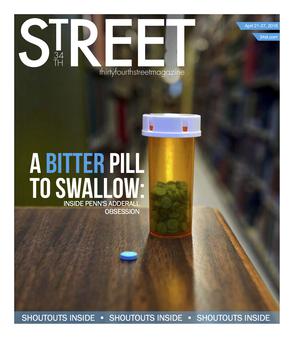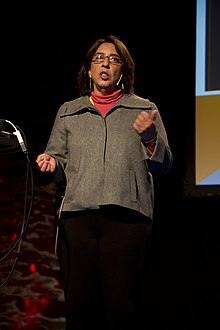
The Medill School of Journalism, Media, Integrated Marketing Communications is a constituent school of Northwestern University that offers both undergraduate and graduate programs. It frequently ranks as one of the top school of journalism in the United States. Medill alumni include 40 Pulitzer Prize laureates, numerous national correspondents for major networks, many well-known reporters, columnists and media executives.

The Hartford Courant is the largest daily newspaper in the U.S. state of Connecticut, and is considered to be the oldest continuously published newspaper in the United States. A morning newspaper serving most of the state north of New Haven and east of Waterbury, its headquarters on Broad Street in Hartford, Connecticut is a short walk from the state capitol. It reports regional news with a chain of bureaus in smaller cities and a series of local editions. It also operates CTNow, a free local weekly newspaper and website.

The Pulitzer Prize for Investigative Reporting has been awarded since 1953, under one name or another, for a distinguished example of investigative reporting by an individual or team, presented as a single article or series in a U.S. news publication. It is administered by the Columbia University Graduate School of Journalism in New York City.

The Daily Pennsylvanian, Inc. is the independent student media organization of the University of Pennsylvania. The DP, Inc. publishes The Daily Pennsylvanian newspaper, 34th Street Magazine, and Under the Button, as well as five newsletters: The Daily Pennsylvanian, The Weekly Roundup, The Toast, Quaker Nation, and Penn, Unbuttoned.
James V. Grimaldi is an American journalist, investigative reporter, and Senior Writer with the Wall Street Journal. He has been awarded the Pulitzer Prize, twice, for investigative reporting in 1996, with the staff of the Orange County Register, and in 2006, for his work on the Jack Abramoff lobbying scandal while working for The Washington Post.
Leonard "Len" Downie Jr. is an American journalist who was executive editor of The Washington Post from 1991 to 2008. He worked in the Post newsroom for 44 years. His roles at the newspaper included executive editor, managing editor, national editor, London correspondent, assistant managing editor for metropolitan news, deputy metropolitan editor, and investigative and local reporter. Downie became executive editor upon the retirement of Ben Bradlee. During Downie's tenure as executive editor, the Washington Post won 25 Pulitzer Prizes, more than any other newspaper had won during the term of a single executive editor. Downie currently serves as vice president at large at the Washington Post, as Weil Family Professor of Journalism at the Walter Cronkite School of Journalism and Mass Communication at Arizona State University, and as a member of several advisory boards associated with journalism and public affairs.
The Center for Investigative Reporting (CIR) is a nonprofit news organization based in Emeryville, California. It was founded in 1977 as the nation’s first nonprofit investigative journalism organization, and has since grown into a multi-platform newsroom, with investigations published on the Reveal website, public radio show and podcast, video pieces and documentaries and social media platforms, reaching over a million people weekly. The public radio show and podcast, “Reveal,” co-produced with PRX, is CIR’s flagship distribution platform, airing on 588 stations nationwide. The newsroom focuses on reporting that reveals inequities, abuse, and corruption, and holds those responsible accountable.

The Post is a student-run newspaper in Athens, Ohio, that covers Ohio University and Athens County. While classes at OU are in session, it publishes online every day and in print every Thursday. Though its newsroom is located in John Calhoun Baker University Center at Ohio University, the paper is editorially independent from the university.
Scott Higham is a Pulitzer Prize-winning member of The Washington Post's investigations unit. He graduated from Stony Brook University, with a B.A. in history and has a M.S. from the Columbia Graduate School of Journalism. Higham also earned an A.S. in criminal justice at Suffolk County Community College.
Margot Williams is a journalist and research librarian, who was part of teams at the Washington Post that won two Pulitzer Prizes. In 1998, Williams was part of a team that won the Pulitzer Gold Medal for public service for reporting on the high rate of police shootings in Washington, D.C. In 2002, Williams was part of a team that won the Pulitzer Prize for National Reporting for its coverage of the "war on terror".
Debbie Cenziper is a Pulitzer Prize-winning American investigative journalist and nonfiction author. As of November 2022 she writes for ProPublica and is the director of the Medill Investigative Lab at Northwestern University. She spent more than a decade as an investigative reporter at The Washington Post, and has written two nonfiction books.
Data journalism or data-driven journalism (DDJ) is a journalistic process based on analyzing and filtering large data sets for the purpose of creating or elevating a news story.
Alan C. Miller is a Pulitzer Prize-winning American journalist and the founder of the News Literacy Project, a national education nonprofit that works with educators and journalists to offer resources and tools that help middle school and high school students learn to separate fact from fiction. In 2020, NLP expanded its audience to include people of all ages.
Alix Marian Freedman is an American journalist, and ethics editor at Thomson Reuters.
Russell John Carollo was an American Pulitzer prize-winning journalist, who worked as an investigative reporter for numerous publications, including the Dayton Daily News, the Los Angeles Times, and The Sacramento Bee.
Gary Cohn is an American Pulitzer Prize-winning investigative reporter and adjunct professor at the University of Southern California Annenberg School for Communication and Journalism.
Tom McGinty is a Pulitzer Prize-winning investigative journalist known for his use and advocacy of computer-assisted reporting.

BuzzFeed News is an American news website published by BuzzFeed. It has published a number of high-profile scoops, including the Steele dossier, for which it was heavily criticized, and the FinCEN Files. Since its establishment in 2011, it has won the George Polk Award, The Sidney Award, National Magazine Award, the National Press Foundation award, and the Pulitzer Prize for International Reporting.

Julia Angwin is a Pulitzer Prize-winning American investigative journalist, New York Times bestselling author, and entrepreneur. She is co-founder and editor-in-chief of The Markup, a nonprofit newsroom that investigates the impact of technology on society. She was a senior reporter at ProPublica from 2014 to April 2018 and staff reporter at the New York bureau of The Wall Street Journal from 2000 to 2013. Angwin is author of non-fiction books, Stealing MySpace: The Battle to Control the Most Popular Website in America (2009) and Dragnet Nation (2014). She is a winner and two-time finalist for the Pulitzer Prize in journalism.
Anthony Cormier is an American journalist with BuzzFeed News, and formerly with the Tampa Bay Times and the Sarasota Herald-Tribune. Cormier was a co-recipient of the 2016 Pulitzer Prize for Investigative Reporting.







